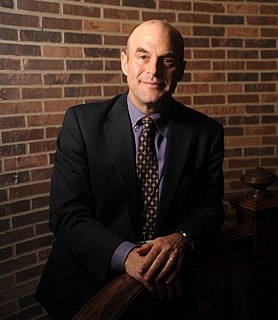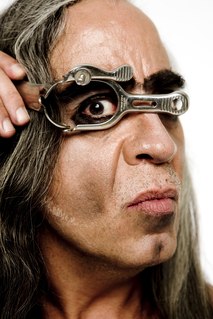Цитата Майкла Патернити
Такие писатели, как Джон Т. Эдж, чьи работы посвящены истории культуры, стоящей за едой, сделали так много, чтобы показать, что эти истории являются действительно важной частью нашего культурного наследия.
Связанные цитаты
Моя настоящая цель в рассказывании историй ученикам средней школы заключалась в том, чтобы попрактиковаться в рассказывании историй. И я практиковался на величайшей модели повествования, которая у нас есть, а именно на «Илиаде» и «Одиссее». Я рассказывал эти истории много-много раз. И то, как я оправдывал это перед директором школы, если он приходил, или перед любыми родителями, которые жаловались, было: «Послушайте, я рассказываю эти замечательные истории, потому что они часть нашего культурного наследия. Я верил этому.
Правда в том, что писатели, оказавшие на меня наибольшее влияние, не относились к категории криминальных писателей. Я бы сказал, что научился большему у Джона О'Хара, которого сегодня мало кто читает, но чьи рассказы мне очень нравятся, и у Хемингуэя, который, как мне кажется, продержался довольно долго.
ЮНЕСКО обеспечивает защиту великих культурных учреждений. Есть так называемый список нематериального культурного наследия. И итальянцы хотят положить на него неаполитанскую пиццу. Но для этого вы должны показать, что то, что вы пытаетесь защитить, находится под угрозой. И пицца находится под полной угрозой со стороны Pizza Hut и Domino's...
Я хочу, чтобы люди уходили из театра с большим пониманием богатого культурного наследия Пакистана. «Песня Лахора» выходит за рамки заголовков и стереотипов и показывает, что подавляющее большинство пакистанцев не совершают религиозного насилия, а являются его жертвами. Прекрасное культурное наследие региона опровергает его образ на Западе как монолитно религиозного, нетерпимого и жестокого.
Термин «испаноязычный», придуманный экспертами по техномаркетингу и организаторами политических кампаний, гомогенизирует наше культурное разнообразие (чикано, кубинцы и пуэрториканцы становятся неразличимыми), избегает нашего коренного культурного наследия и напрямую связывает нас с Испанией. Что еще хуже, он имеет коннотации вертикальной мобильности и политического послушания.





































